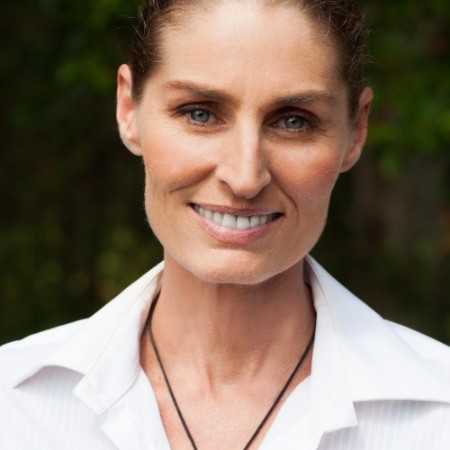How to be an Efficient Science Writer
Learn how to be more efficient at each stage of the writing process.
Bookings now open for next release: Wednesday 8th May 2024
Time management
Learn how to improve your time management and permanently develop efficient writing habits.
Document design
Learn how to efficiently produce a first-draft research paper or science report. Learn how to align your project design with your document outline.
Prioritising what you write
Learn what to do before you start writing, how to get started and how to stay on track to produce a content-rich, first-draft document.
Are you an inefficient writer?
The Problem:
The ability to communicate science effectively is often limited by a lack of education in writing skills.
When writing about science it is easy to drift away from your key topic when researching, planning and writing. This is especially true when writing reports or papers for large projects.
The pressure of getting the science right often causes science writers to be too perfectionist in their approach, exacerbating inefficient writing behaviour.
Inefficient writers commonly:
- take a long time to finish a document.
- are not happy with the final product.
- dread the prospect of writing.
- suffer from procrastination and writer’s block.
- don't spend enough time thinking about their central aim and key messages.
- lack confidence in their writing ability.
This often results in:
- Writing that lacks clarity and focus.
- Excessive time spent editing, writing and rewriting.
- Excessive, incorrect or untimely feedback.
- Poor appreciation of your hard work and talents.
- Lack of reader engagement.
The Solution:
Improving your writing efficiency will help you:
- reduce writer fatigue and anxiety.
- produce higher quality documents.
- improve your confidence as a writer.
Dr Marina Hurley shows you how to stay on track and be more efficient at each stage of the writing process.
Marina will show you how to:
- get to the point, quickly and effectively.
- avoid producing seemingly endless drafts.
- think clearly about what you want to write.
- decide who you are writing for.
Irrespective of your topic, background, level of writing experience or document type, you can implement these steps to develop your first draft or rework a current document.
By following the steps and writing exercises outlined in this course, Marina shows you how to permanently improve your writing behaviour.
You are given downloadable pdf worksheets that will help you to produce content for your first-draft documents. You can also reuse these worksheets for future projects or if writing different documents from the same project.
Course Content
The course consists of three modules, with 3 - 4 lessons (steps) and 2 - 4 writing exercises per module.
1
Module 1: Introduction
Step 1: How to define or clarify your project aim
Step 2: The priorities of science writing
Step 3: How to develop efficient reading, citation and note-taking habits
Step 4: How to effectively manage your writing time
2
Module 2: Getting started
Step 1: How to plan the stages of document production
Step 2: How to identify the target audience and purpose
Step 3: How to align project design with document structure
Step 4: How to produce a content-rich first draft
3
Module 3: How to manage the writing process
Step 1: How to prioritise the writing process
Step 2: How to critically evaluate your writing
Step 3: How to seek and respond to feedback
Step 4: How to monitor your writing productivity
Step 5: Course recap and additional resources
What this course does not cover
How to be an Efficient Science Writer does not cover:
- - How to write clear sentences and paragraphs, how to write concisely and document design are covered in face-to-face workshops. Also, there is also a new online course we offer: The Essentials of Sentence Structure. To find out more, go to www.writingclearscience/com.au/sentence-structure.
- - The Essentials of Paragraph Structure and How to Write Clearly & Concisely are the next courses due for release mid 2024. To be kept up-to-date with new courses and blogposts, please subscribe to the Writing Clear Science newsletter.
(To request an invoice prior to booking, please email admin@writingclearscience.com.au)
Who is this course for?
The course is designed for both experienced and inexperienced writers
- If you are an experienced writer and want to improve your efficiency and productivity, this course will help you reduce the time you spend writing, editing and rewriting your work.
- If you are new to science writing, this course will help you understand the essentials of clear, straightforward sentences, without needing an in-depth knowledge of grammar.
Research scientists
This course will benefit research scientists who regularly publish their work.
Non-academic scientists
This course will benefit graduate scientists who do not publish research and rely on their scientific investigation and reporting skills to solve environmental, economic, medical or social issues.
Postgraduate science students
This course will benefit postgraduate science students from any discipline: for example medicine, life and environmental sciences, engineering, chemistry and physics. The course will also benefit students from other academic disciplines.
Consultants
This course will benefit science graduates who work as consultants or within consultancy firms and rely on their scientific investigation and reporting skills to solve environmental, economic or social issues.
(To request an invoice prior to booking, please email admin@writingclearscience.com.au)
Course Fees
with 20% discount for Alumni students*
*Any person who has completed any type of Writing Clear Science training.
Email admin@writingclearscience.com.au for your 20% student alumni discount code.
COURSE Enrolment
Bookings now open for next release: Wednesday 8th May 2024
Complete at your own pace.
One-on-one monthly tutorials (x6) and instructor feedback.
20% discount for Alumni students*
$
345
20% Alumni Discount
Any person who has completed
Writing Clear Science training is eligible for the 20% Alumni discount
To request an invoice prior to booking, please email admin@writingclearscience.com.au
One-on-one tutorials
How the one-on-one tutorials work
Personalised, one-on-one tutorials are run once a month through the LiveWebinar platform. These tutorials allow you to meet with Dr Marina Hurley, ask questions and receive feedback on writing you have recently submitted. During the tutorials Marina will answer any questions on writing-related topics .
Replays and transcripts are provided for you to review in your own time.
Click here to download the brochure.
(To request an invoice prior to booking, please email admin@writingclearscience.com.au)
Testimonials
"I always found it challenging to balance efficient reporting with high-quality outputs. The How to be an Efficient Science Writer course has given me great confidence in this pursuit.
The course provided me with a robust toolset that is delivered within a clear and straight-forward framework, which emphasises key science-writing principles. I now take a more structured approach to writing tasks and have a much clearer idea of the time required to deliver high quality writing products.
I recommend the course to both early and mature professionals looking to build their skills from scratch, and those looking to sharpen their current approach to science writing. Marina, thanks again for providing such a great course."
"Your workshop really helped me brain storm ideas before I started to write so I wouldn’t be overwhelmed with the amount of thoughts and information I needed to incorporate into reports. A course well worth the time. No hesitation to recommend."
"I completed ‘How to be an efficient science writer’ in the first year of my PhD. Prior to the course, I ticked every box for inefficiency and felt I needed help.
I credit Marina for teaching me, step by step, the skill of producing a scientific document in a time frame expected at a professional level. I am so grateful for the knowledge I gained and have continued to use for every writing project since."
"I have produced so many written materials after graduating in 2008, and I really wish I had done this course when commencing my career.
It has introduced me to many writing strategies and topics that I now realize I had previously taken a bit of an ad hoc approach toward. It has also been invaluable in helping me put a lot more structure and rigour around my approach to the current document I am preparing.
Thank you again for an excellent set of teaching materials, the course has really helped me up my game.."
"...when I went through the course, I absolutely enjoyed it and I wished I knew about it earlier! Your teaching did so much good beyond what I believed it would.
Above all, your teaching has helped me develop my confidence and has been a huge transformation for me with my current working environment.
Writing has been an ongoing struggle for me but, I would like to thank you from the bottom of my heart that your teaching has been an invaluable tool, not only to help me with my writing, but also with my general communication. Life in the workplace has become less daunting and I will definitely recommend this writing course!"
"The How to be an Efficient Science Writer course has given me the tips I needed to get over that initial hurdle to just start writing.
I now use the things I learnt in the course almost everyday and I feel less dread when it comes to writing. Highly recommended."
About the course Instructor, Dr Marina Hurley
Originally an ecologist and insect-plant specialist, I received my PhD in Zoology (Insect-plant interactions) in 1997 and then worked as an academic and researcher. I found that I loved giving students feedback on their writing and switched to teaching writing full-time in 2004. Since then, I have developed a unique approach to teaching science writing that I deliver through my Writing Clear Science workshops and online courses. I teach scientists, students and science professionals from all walks of scientific life and all science disciplines.
I always look forward to seeing what current projects my students are working on and find it immensely rewarding to see how my teaching has helped so many people. In this current online course How to be an Efficient Science Writer, I show you how to rapidly develop a content-rich first draft document.
You can read my blog here
You can read more about my background here: au.linkedin.com/in/marinahurley/
Frequently Asked Questions
- The minimum time commitment is 2-4 hours per week, depending upon how much time you take to complete each writing exercise, what module you are working on, how much writing you do as you complete the course and whether you are a self-study or premium member.
- While completing the course, you are encouraged to prepare a first draft of a document. How long you take to do this is up to you.
- During your 6 month membership, you can submit 500 words (per month) for feedback..
Yes. However, you are expected to be able to write grammatically-correct sentences in English. If you submit your writing for feedback, Marina will let you know if you are making any obvious grammar errors.
Marina Hurley primarily teaches scientists, science students and science professionals. While you do not need a science degree to complete this course, you will be expected to understand the basic principles of how science works.
This course is primarily designed for science writers producing peer-review science journal articles and science reports, including consultancy and client reports. However, if you are writing other types of documents you will still benefit from this course.
You can enrol and start this course at any time. You can complete the course at your own pace as you have 6 months access.
No. Marina teaches sentence structure without relying on pre-existing grammar knowledge. All grammar terms used in this course are clearly defined in plain English. Additional training resources are also provided to help you understand some basic grammatical concepts.
No. All educational material is delivered through the online course library. All lectures are available as pre-recorded videos (each a maximum 15 minutes in length). The exercises and worksheets need to be downloaded and completed on your own computer.
Marina broadly defines science writing as writing about science.
"...The key feature of all types of science writing is that the topic under discussion is a scientific topic: that the information presented has been gathered, analysed and critiqued using accepted scientific methods. This is true whether you are presenting new science (e.g. research papers, theses), reviewing research by others (e.g. literature reviews, desktop reviews), reporting scientific approaches and methods to solve commercial or industry issues (e.g. reports, policy reviews) or writing about the astonishing world of science (e.g. news or magazine article)."
Read more from Marina's blogpost 'What is Science Writing?'.
No. If you submit an exercise for feedback, Marina takes an average of 1-3 days to respond. If you have any problems with any aspect of the course, we will respond within 24 hours and aim to solve your issues in the shortest possible time. The live tutorialss (for premium members) are run at 1pm AEDT, so you would need to check your timezone to see if you can attend live. Otherwise, the replays are placed in the course library within 24 hours.
No. However, in our other online course, The Essentials of Sentence Structure, Marina teaches how to edit your work to improve your sentence structure and clarity.
Yes. Although some of the writing exercises are designed to help you produce content for a current document, you can write about any topic.
Yes. To request an invoice or other ways to pay, please email admin@writingclearscience.com.au.
Yes. If you have ever completed any previous training with Writing Clear Science you are eligible for the 20% Alumni discount* on either course.
(To request an invoice prior to booking, please email admin@writingclearscience.com.au)

Refund Policy
You can apply for a 100% refund if you are not satisfied with the course within 7 days of course commencement. Please note that you will not be eligible for a refund if you have progressed further than Step 3 Module 1.
Please also read our Terms & Conditions.












